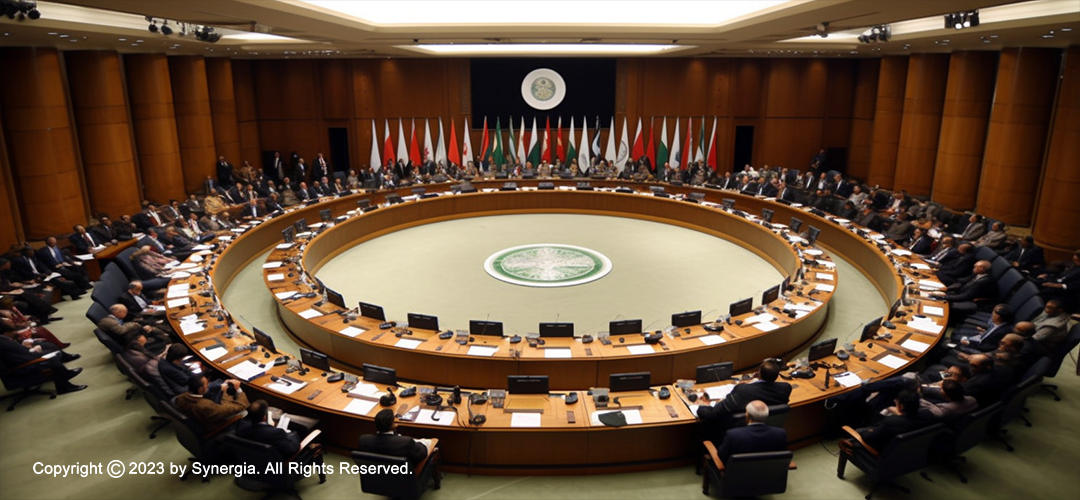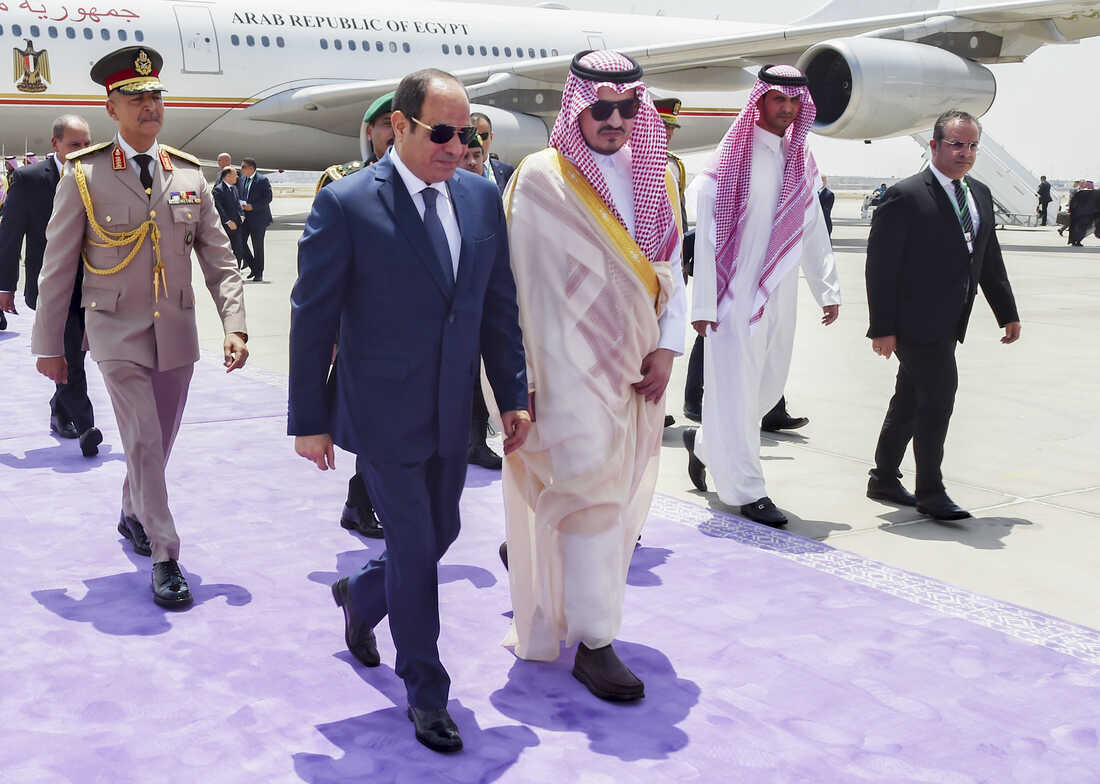Welcoming Back Into the Fold?
May 20, 2023 | Expert Insights

For the last two decades, the Middle East has experienced turmoil that has been, at times, the worst in its recorded history. While the entire region has been impacted in one way or the other, the most consequential impacts have been in Syria.
Twelve years ago, Syria was voted out of the Arab League as the uprising within its borders turned ugly, causing nearly half a million deaths and displacing half of its 23 million population. On May 7th, it turned full circle, with Syria being reinstated by the League by a majority vote of 13 out of 22.
Background
When the Arab Spring movement began in 2010-11, a lot of aspirations were attached to this phenomenon. It was hoped that this would herald the dawn of a new democratic era in the Middle East. But this hope proved to be relatively short-lived. Revolutions in Arab countries did not live up to the expectations held out for them. Either regime collapse led to complete disorder and lawlessness, or the ruling dispensation held on to its power by hook or crook. In either case, the common people suffered in the end. Syria falls into the latter category. The country has had to pay a very heavy price for the survival of the Assad regime.
Syria is, by all accounts, an explosive mix that can be set alight by the smallest fuse. The ruling Baath Part rests on a very slim foundation, having crushed by brute force all opposition. On top of this, the Baath Party is itself controlled by a small sectarian minority. These are from the Alawite community, which is an offshoot of Shia Islam. Therefore, the regime heavily relies on outside powers to ensure its survival.
The two countries which have stood by the side of the Syrian government through more than ten years of civil war are Iran and Russia -both for different reasons. Iran has had a close relationship with the Syrian regime since the Islamic Revolution in 1979. Syria was the only Arab country that did not oppose the growing influence of the Islamic Republic in the Middle East. Russia also has historical ties with Syria. This goes back to the time of the Cold War. At that time, Syria was a major Arab ally of the Soviet Union. It provided Moscow with access to the warm waters of the Mediterranean, which it continues to do today.
The Iranian involvement in the internal conflict raised the proverbial red flag in the conservative Arab Gulf monarchies. So, the Gulf Arabs had to act quickly. They immediately declared their support for the emerging Syrian opposition. There was just one problem with this arrangement. There was no unified, coherent Syrian opposition to begin with. Instead, the opposition was divided into various groups and factions. Each group received support from a specific country.
The moderate democratic opposition could not bring about any significant change. Radical Islamist groups readily filled up this vacuum. They received backing from unofficial sources in the Gulf. At the same time, unrest among the Sunni population in neighbouring Iraq was growing due to oppression by the Shia-led government there. All this created a perfect storm. Due to instability in both Iraq and Syria, the border between the two states dissolved. The caliphate of the Islamic State was established.
The United States was in a conundrum right from the beginning of the fighting in Syria. It sympathized with the opposition. Washington offered arms and weapons training to the moderate rebels. But these forces were facing an increasingly uphill task. They not only had to fight the Assad regime but also the growing number of Islamist groups.
To add to this complexity were the Kurds in northern Syria, who always longed for autonomy. In the chaos of the civil war, the Kurdish forces did get a certain amount of independence. However, this was seen as a direct threat by Turkey. The Turks had been fighting the Kurdish rebellion in their southern provinces for years. This led to a convergence of interests between the Syrian regime and the Turkish government.
The Syrian people were caught up in the middle of these clashing forces. Many were internally displaced. They moved to rebel-safe areas. Others had no other choice but to leave the country altogether. The first likely options were the neighbouring countries. This included Jordan and Lebanon. The next wave of Syrian refugees began to search for more fertile grounds in Europe. This created its own set of problems. So, in the end, the Syrian internal conflict did not turn out well for the neighbourhood. It became a universal problem stretching across the Mediterranean Sea into Europe.

Analysis
In the end, who won the civil war in Syria? Apparently, it looks like the Assad regime won it because it survived in the end.
This was obviously a boost for Iran. Its indispensable security partner in the Arab world had prevailed.
For Russia, Syria was a testing ground of its military action before its current war in Ukraine. Many Russian generals, soldiers and mercenaries fighting in Ukraine now got their bearings in Syria. Moscow tested its latest weapons on Syria’s population just like it would later use the same tactics on Ukrainians. For the first time since the collapse of the Soviet Union, an external intervention has succeeded. Russia still has a foothold in the Arab world.
The Gulf nations always wanted Syria within their geopolitical orbit. If that could be achieved without toppling Assad, then this was par for the course. This was the feeling that dawned on the Gulf Arabs after more than ten years of failed policy in Syria. The rapprochement between Iran and Saudi Arabia also helped.
Both Iran and Russia know that they cannot possibly play a part in the full economic reconstruction of Syria on their own. As a result, they are allowing financial ties between Damascus and the Gulf Arabs to continue. Syria is way too important an investment for these powers to be lost to an economic meltdown.
For India, any reconciliation in the Middle East is always good news. The secular Assad regime is always a better partner for New Delhi than radical Sunni Islamists. The Syrian government adds to the support that India has in the Arab world on the Kashmir issue. The impact of the Islamic State has been felt in India as well. So, New Delhi will be glad that the fighting in Syria is finally over.
Assessment
- Even though the Gulf Arabs have re-established relations with Damascus it will be a long time before the Syrian government once again receives full international recognition.
- Technically Iran and Russia are the winners from the Syrian civil war. But they have not been able to reap the benefits.
- Western policy has completely failed in Syria as it did not achieve any of its objectives. Worse, any meeting of minds between Syria and the Gulf Arabs is bad news for Israel.








Comments